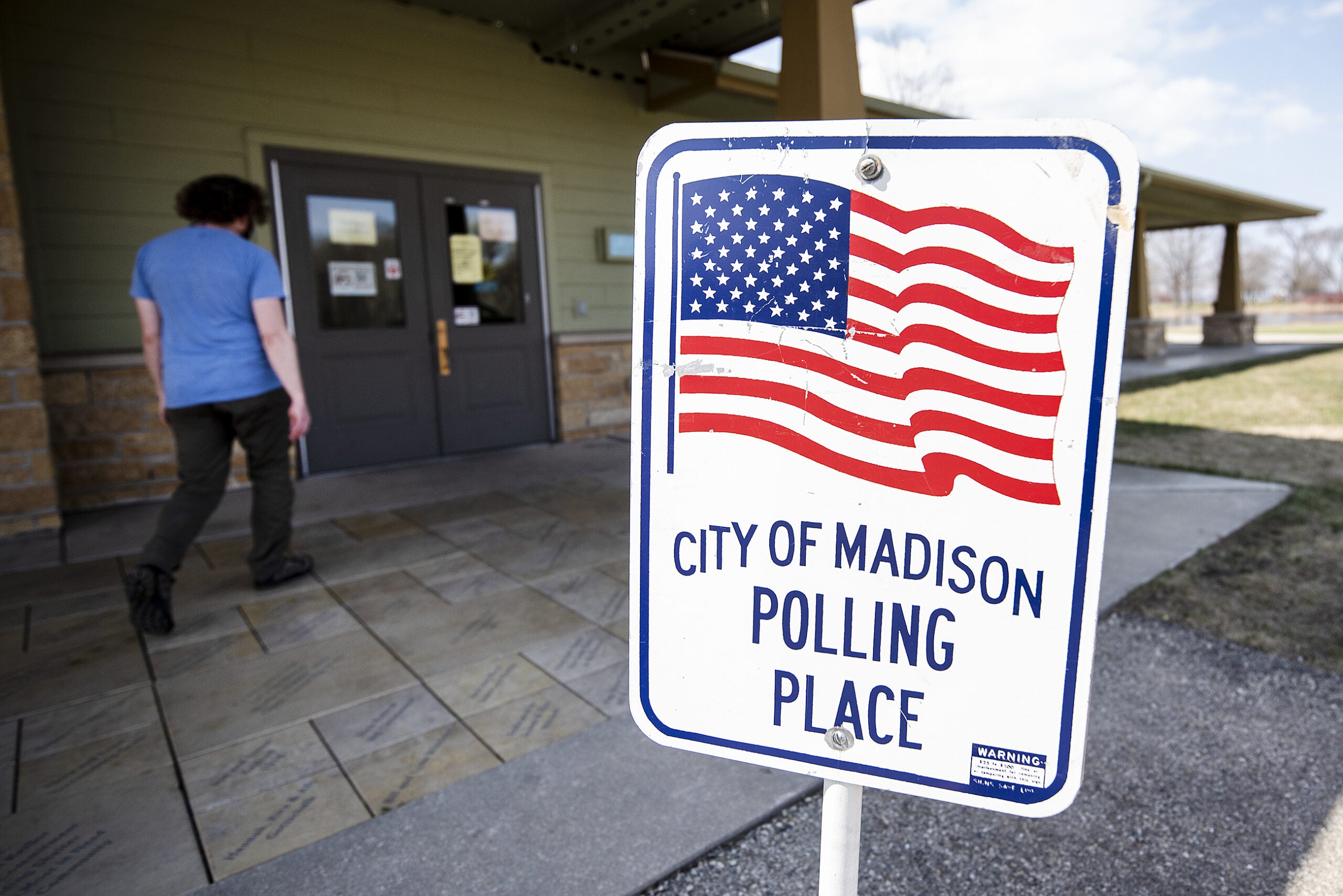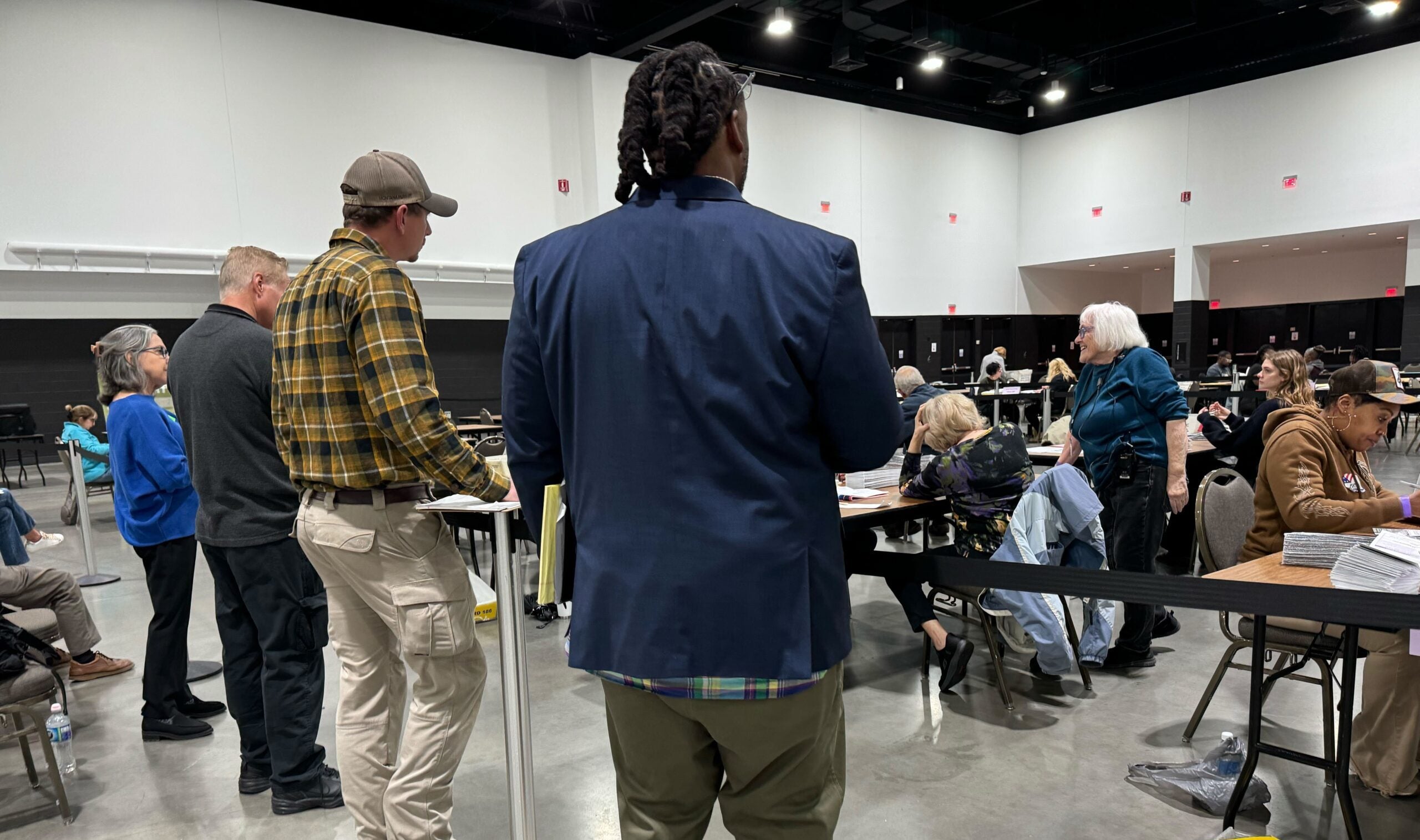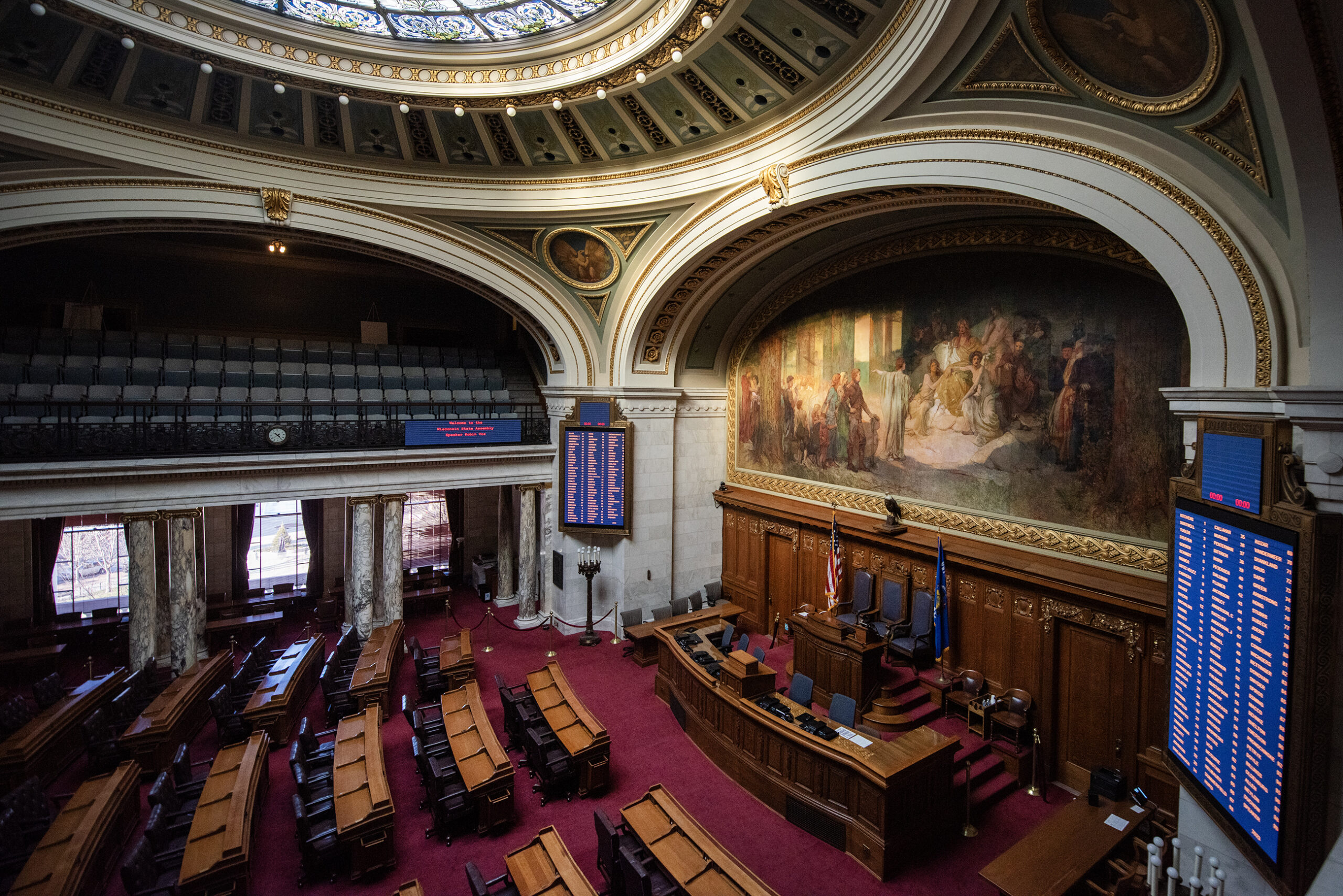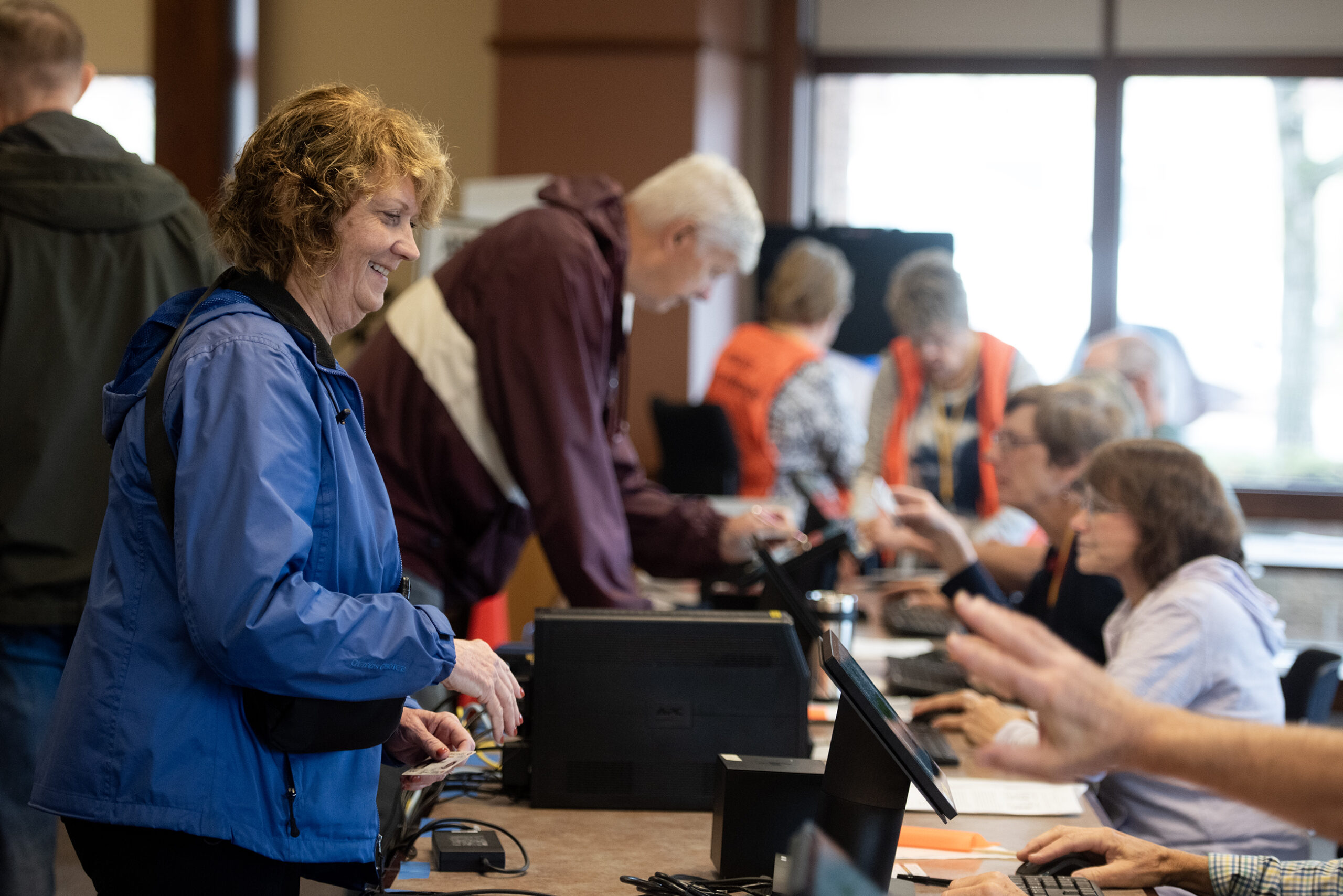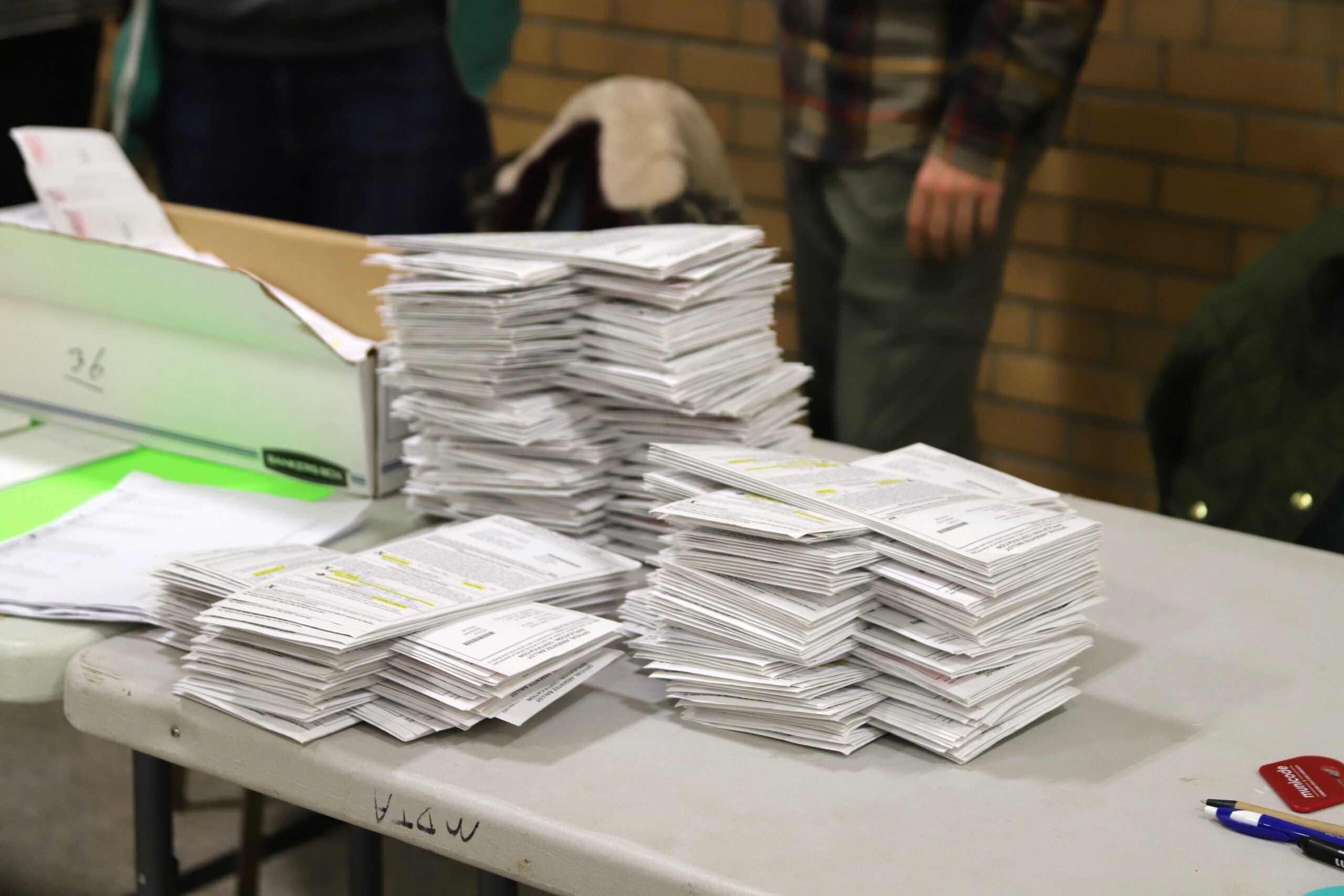A new state Assembly bill is proposing to move the Wisconsin Elections Commission from Madison to Wausau.
State Rep. Steffen, R-Green Bay, one of eight sponsors for Assembly Bill 511, testified before the Committee on Government Accountability and Oversight at a public hearing on Wednesday.
“By having (the Elections Commission offices) centrally located in the state, we can guarantee access to all candidates,” said Steffen. “It will save the state of Wisconsin taxpayers well over $100,000 every year. And it also provides an opportunity to take that very first step, one that has been attempted for well over a decade, to move our state government a little closer to people.”
Stay informed on the latest news
Sign up for WPR’s email newsletter.
The Elections Commission is one of more than 60 state agencies and commissions. Under current state law, all commissions must be located in Madison.
Some of these bodies, the Elections Commission included, rent office space in the city.
According to a study done by Rep. Robert Wittke, R-Racine, the Elections Commission pays $250,000 annually to lease 11,500 square feet at 212 E. Washington Ave. in Madison, a privately owned property. The bill’s sponsors argue that moving the offices to Wausau, where rents are cheaper, would save taxpayers money.
In addition to cost saving, Steffen said the move to Wausau would benefit elected officials on both sides of the aisle. Come election season, all elected officials must submit their nomination papers in-person to the Elections Commission. Moving the offices closer to the geographic center of the state would make this easier, said Rep. Steffen.
But it’s not that simple.
While Wausau might represent the state’s geographic center, the majority of the state’s population and Assembly districts are concentrated in the southeast.
“This concerns me with getting it away from our population centers in the southeast corner of the state,” said Rep. Jodi Emerson, D-Eau Claire. “I feel like this would make it a little bit more inaccessible for some people to file paperwork to run for office.”
This was a concern shared by the advocacy group Wisconsin Democracy Campaign, the lone opposition at Wednesday’s hearing.
“They just pulled Wausau out of a hat,” said Matt Rothschild, the group’s executive director, after the hearing. “There’s a reason why commissions and agencies are located in Madison because this is where the state government is. This is the natural logical place for things to be housed.”
The bill was well-received by the committee, but Chairman Knodle, R-Germantown, also happens to be a sponsor of the bill. Additional sponsors, all of whom are Republican, include Rep. Timothy Ramthun, R-Campbellsport; Rep. David Armstrong, R-Rice Lake; Rep. Rachael Cabral-Guevara, R-Appleton; Rep. Clint Moses, R-Menomonie; Rep. Donna Rozar, R-Marshfield; and Rep. Ron Tusler, R-Harrison.
“This just looks to me like another Republican stunt, another distraction from the real issues that people want the legislature to deal with here in Wisconsin,” said Rothschild.
There is some precedent for at least exploring the possibility of relocating commissions in the state, said Steffen. In the past, there have been proposals to move the state Department of Natural Resources north of Highway 29 and the Department of Tourism to Wisconsin Dells. But none have succeeded.
And while there are satellite or regional offices for some agencies scattered throughout the state, most still have their administrative headquarters in Madison.
If Assembly Bill 511 passes, the Elections Commission offices would move to Wausau by April 15, 2024. But the bill is still early in the legislative process. The authors are currently looking for a sponsor in the state Senate. And even with Republican support in both houses, the bill would need to survive a veto from Gov. Tony Evers for it to pass.
And in the wake of a global pandemic with federal unemployment benefits ending, this isn’t exactly a pressing issue for Wisconsinites right now, opponents say.
“The people of Wisconsin don’t care about where the Wisconsin Elections Commission is located,” said Rothschild. “They care about good jobs, getting health care, having their public schools funded, making sure their broadband works. No one’s been clamoring for this change.”
Wisconsin Public Radio, © Copyright 2025, Board of Regents of the University of Wisconsin System and Wisconsin Educational Communications Board.
